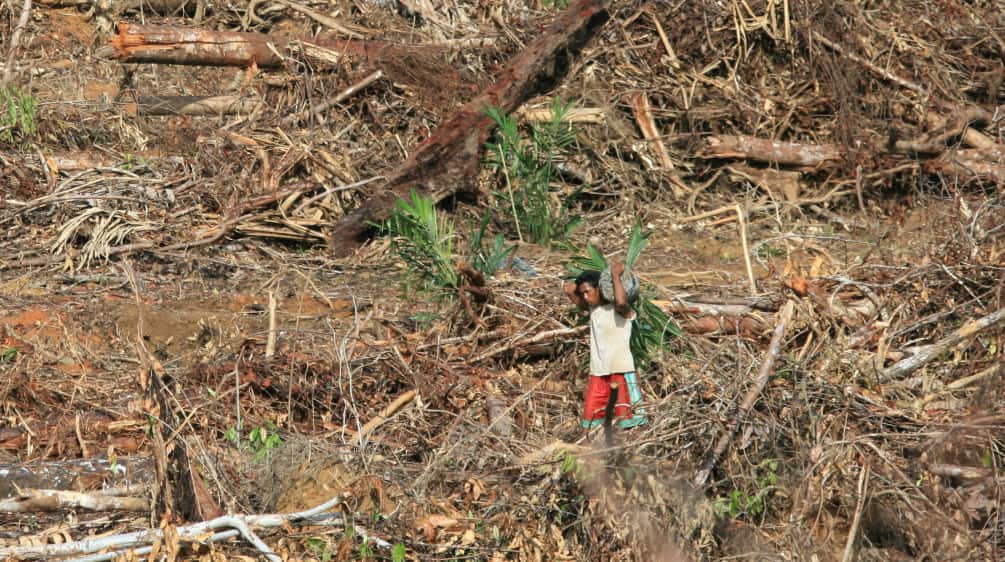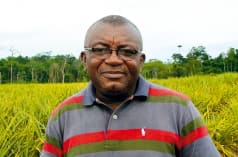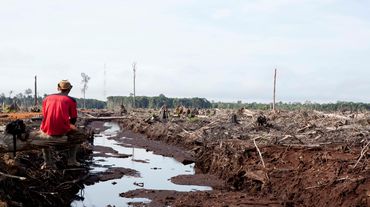Study: Indonesia's “Food Estates” drive hunger and environmental destruction
 Deforestation in Papua province (© Rita Sastrawan)
Deforestation in Papua province (© Rita Sastrawan)
Mar 5, 2021
A new study reveals Indonesia’s plans to clear hundreds of thousands of hectares, including pristine forests, for “food estates”. Similar projects in the past were thinly veiled land grabs that offered massive profits to the timber and palm oil industries while doing little or nothing to improve food security.
Rainforest Rescue, Environmental Paper Network, Biofuelwatch and other organizations have released “Swallowing Indonesia's Forests”, a study of Indonesia's so-called “Food Estate” programs – agribusiness mega-projects notorious for their lack of transparency and accountability, as well as their disregard for human rights and environmental protection.
In June 2020, the Indonesian Government announced plans for a new “Food Estate Program” for Central Kalimantan, on the island of Borneo, followed by a second announcement, in September 2020, of a “Food Estate Program Papua”, on the island of New Guinea. Further projects have been subsequently announced for other provinces. A third project has been announced for North Sumatra, and more are expected for other regions. These projects would convert a total of almost two million hectares of forests – an area roughly the size of Wales or the U.S state of New Jersey – into agricultural “food estates”.
The government claims that these projects will stimulate the economy and address a risk of food shortage caused by the Covid-19 pandemic, an issue highlighted by the Food and Agriculture Organization of the United Nations (FAO).
Food insecurity is a real problem for Indonesia, but the latest FAO reports note that malnutrition is worsened by an unhealthy diet, and it recommends increasing dietary diversity and reducing the consumption of rice, fat and sugar. Yet these are the very products – rice, palm oil and sugar – that the Food Estate programs will produce. Past experience shows that these projects rarely feed local people but are used instead to produce commodities for export. Local communities lose livelihoods and suffer food insecurity.
The decision to grant such a vast land area to large scale agribusinesses to produce export-driven commodities violates Indonesian and international legislation that secures local communities’ rights to their customary lands and runs roughshod over their right to Free, Previous, Informed Consent to any use of that land.
In forested areas, thousands of people secure their livelihoods with subsistence agriculture or hunting and gathering forest products. Their food production activities are not accounted for in the national gross domestic product statistics nor in food production data, as this food is not being commercialized – it is not a commodity sold and brought into the market, but directly consumed in the villages. But once their land and their forests are seized and transformed into industrial food estates, what is now unaccounted food production will immediately become an accountable food deficit. The outcome can be summarized in a single word: famine.
For more information, download the full study, “Swallowing Indonesia's Forests”.












